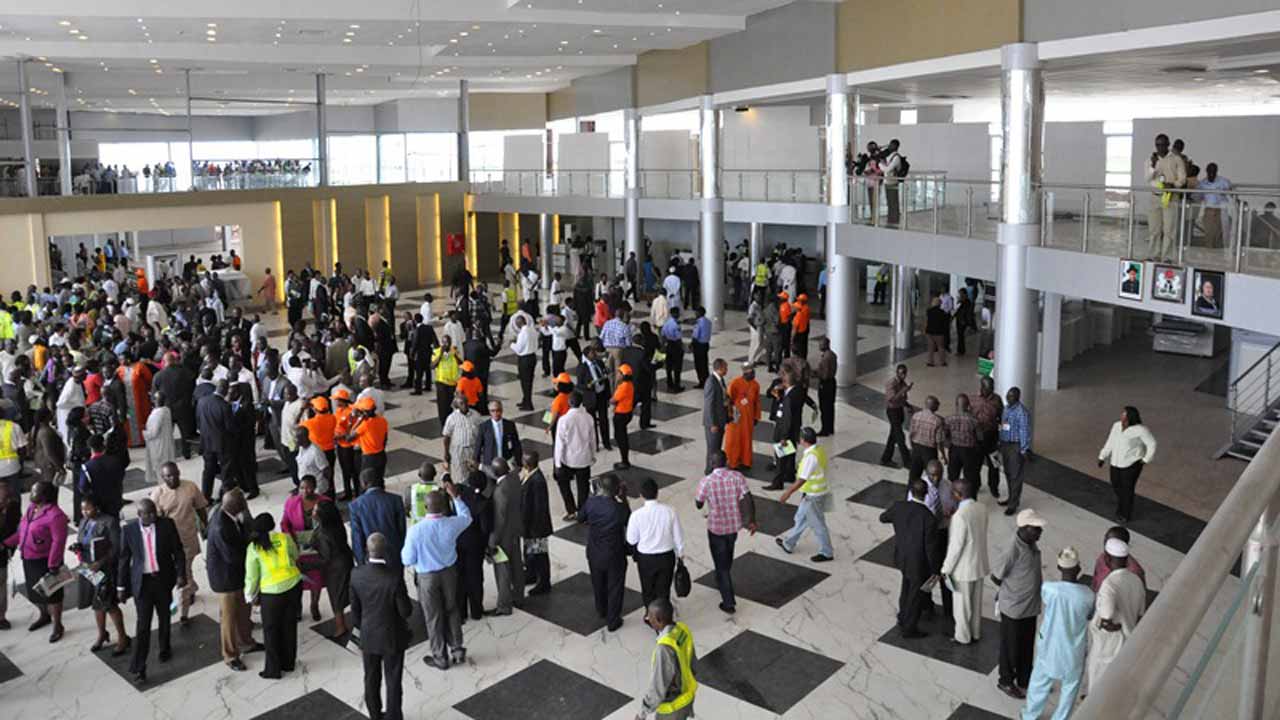- Air Passengers Stranded as Aviation Fuel Scarcity Bites Harder Nationwide
Air passengers in Nigeria are stranded at airports nationwide, as airline operators jostle for aviation fuel, amidst scarcity that is getting worse.
On Tuesday, the passengers, some of whom were on transit, waited endlessly for the departure hall. While few were lucky to later travel, others were later informed that their scheduled flights had been cancelled.
Aviation fuel, otherwise called Jet-A1, is a specialised type of petroleum-based fuel used to power aircraft and normally accounts for over 30 percent of operation cost of an airline.
Jet-A1 is 100 per cent imported into Nigeria and subject to fluctuations in the foreign exchange market. In the last 12 months in Nigeria, aviation fuel has steadily climbed from N104 to N240 per litre in Lagos and as high as N270 in northern part of the country.
Flight delays and outright cancellations means that air travelers are unable to meet scheduled appointments at their respective destinations. In extreme cases, this may also result to huge loss of revenues for those hoping to seal some business deals.
At the General Aviation Terminal (GAT) of Murtala Muhammed Airport (MMA), Lagos, for instance, about three out of every four flights were cancelled, with operators citing “operational reasons”.
The Guardian learnt that one of the airlines operating at the GAT, in fact, cancelled all flights on Monday, and left passengers to learn of the development on getting to the airport.
At the Murtala Muhammed Airport II (MMA2) Terminal, also in Lagos, airlines like First Nation, Med-View, Azman and Dana Air were carrying out services but behind schedule.
A passenger at the GAT, Emmanuel Egboh, told The Guardian that he had been stranded at the airport in the last two days trying to fly to Uyo, Akwa Ibom State.
Egboh said: “This is a flight I had booked since last week. I got here on Monday, only to be told that the flight has been cancelled. No call, no text message, no mail, nothing. Canceled just like that. They said there is no fuel. I’ve been at the airport since morning (Tuesday), the same flight has been delayed for four hours. It is still not certain if we will even fly today.”
Spokesman for Arik Air, Banji Ola, said the airline is the worst-hit due to the huge volume of fuel it required daily to run over 100 flights, but has “drastically been in short supply of the commodity in the last three weeks.”
Ola said that the airline required about 500,000 litres of fuel daily and 150,000 for the Lagos-London operations alone.
He said: “We have not been able to get anything close to the daily requirement and that is why it is affecting us heavily. We are working hard to carry out our schedule and trying to reorganise ourselves to cope with the challenges.”
Aviation fuel marketer, Olasimbo Betiku, explained that the scarcity is due to the lingering problem of foreign exchange hike and scarcity of dollar to import sufficient aviation fuel into the country.
Betiku said t was unfortunate that the government has still not started refining the product at the Kaduna and Port-Harcourt refineries, as promised some months ago, otherwise, Nigeria would not be talking of aviation fuel scarcity by now.

 Naira4 weeks ago
Naira4 weeks ago
 News4 weeks ago
News4 weeks ago
 Naira4 weeks ago
Naira4 weeks ago
 Travel3 weeks ago
Travel3 weeks ago
 Jobs4 weeks ago
Jobs4 weeks ago
 Naira3 weeks ago
Naira3 weeks ago
 Naira3 weeks ago
Naira3 weeks ago
 Investment4 weeks ago
Investment4 weeks ago






























